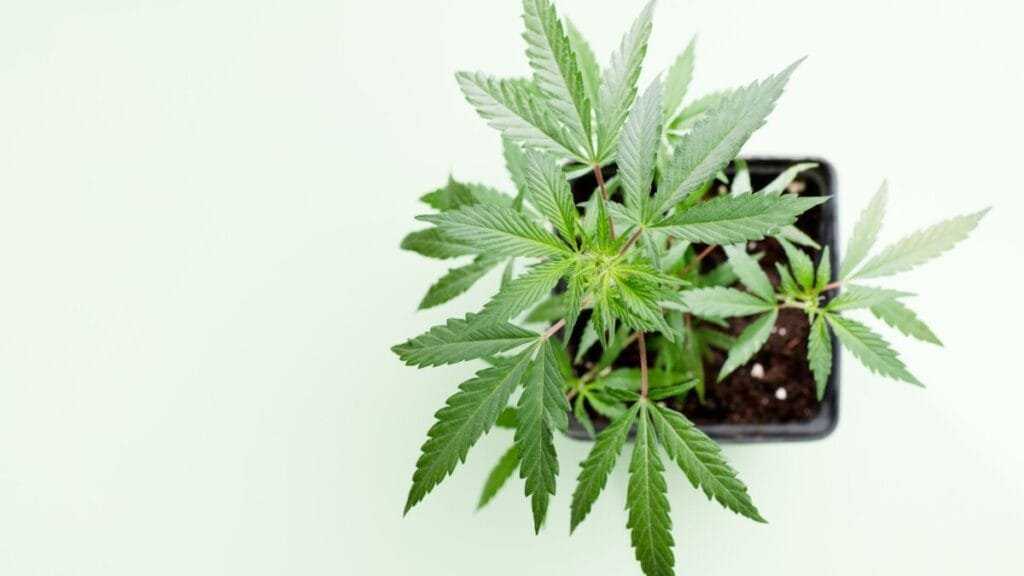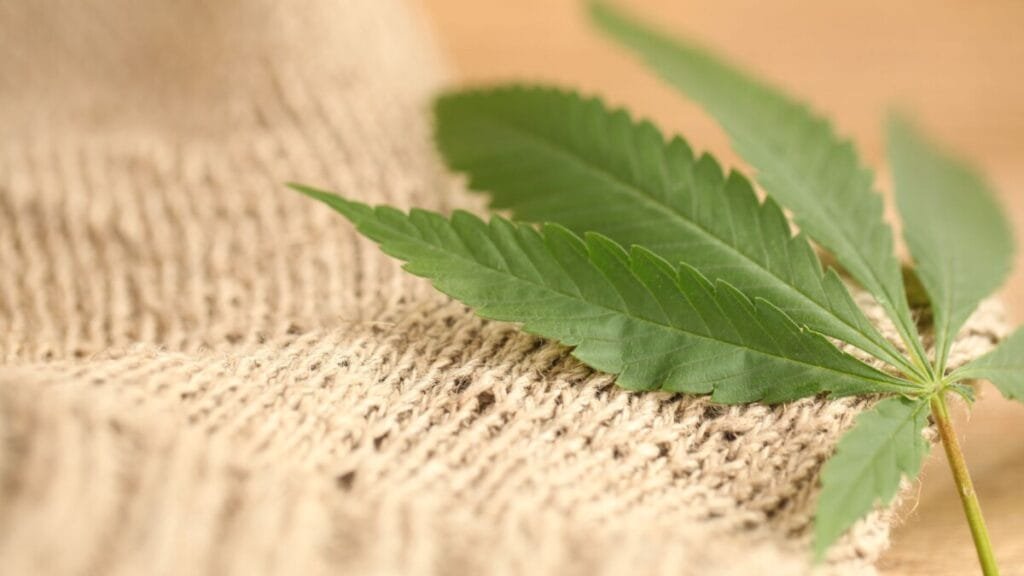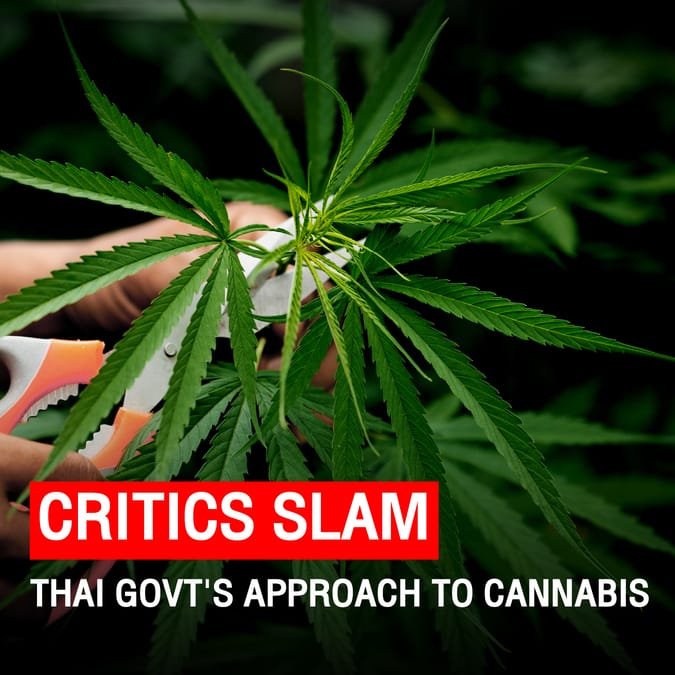Critics have slammed the government's plan to reclassify cannabis as a narcotic, arguing it will harm businesses involved in cannabis-based products and undermine investor confidence in the country.
A health committee responsible for controlling illegal drugs voted by majority on July 5 to reclassify cannabis and hemp as narcotics, effective from Jan 1, 2025, as confirmed by Surachoke Tangwiwat, deputy permanent secretary for public health.
The committee will submit its report to the Narcotics Control Board (NCB) for consideration this month.
The panel's resolution said cannabis and hemp are to be considered narcotic plants, except for their branches, roots and seeds. Cannabis buds and any materials containing more than 0.2% tetrahydrocannabinol (THC) will also be classified as narcotics.
If the NCB agrees with the decision, the next step will be for the Food and Drug Administration to amend any cannabis-related laws and establish criteria for the plants' usage, according to Dr Surachoke. Various laws will have to be amended before Jan 1.
Prime Minister Srettha Thavisin has instructed the Public Health Ministry to revise a ministerial regulation to reclassify cannabis under the Category 5 Narcotics list and issue a regulation to restrict the plant's use solely for medical purposes by the year's end.

Investors losing confidence
Hirunrat Mahaditthadakul, the secretary of the Hemp and Cannabis Industries Association, told the Bangkok Post the government's reversal on the previous administration's cannabis decriminalization policy will dent investor confidence.
"Investors will lose confidence in doing business as a result of the policy flip-flop," she said.
"Several entrepreneurs have invested in [cannabis] businesses worth tens of billions of baht. Production plants have been set up to produce cannabis oil extracts, and licenses obtained," she said.
If the relisting of cannabis as a narcotic takes effect, all they can do is adapt to the change and produce oil extracts from other plants and herbs instead, she said, adding the relisting will also adversely affect cannabis growers who have also made substantial investments.
When cannabis was first decriminalized, many new investors -- including those from abroad -- saw cannabis as a new cash crop that would bring business opportunities, she said.
Over the past two years since the plant was removed from the narcotic list, each entrepreneur has invested at least 10 million baht on average, she said.
"If the plant is put back on the narcotics list, no one will want to grow it. Some may opt to smuggle the plant from neighboring countries because it is cheaper," Ms Hirunrat said.
Shops selling cannabis-based products, particularly in provinces that are tourist destinations, will also be affected by the relisting, she said.
If these shops want to stay in business, they may have to seek permission to operate as traditional Thai medicine clinics and sell cannabis products for medicinal use only, which will also require new investments, she said, adding it is not easy to obtain a license to open a traditional Thai medicine clinic.
"Once the relisting of cannabis as a narcotic takes effect, many of these shops are expected to close down. Only big investors will survive while small entrepreneurs will go out of business," she said.
"The relisting of cannabis as a narcotic is not the right solution. Instead, the government should push for the passage of a cannabis control bill which will set out proper measures for the use of cannabis.
"Right now, it is about politicians playing their game," Ms Hirunrat said, referring to the dispute that appears to have emerged between the coalition partner Bhumjaithai Party, which advocated decriminalization of the plant, and the ruling Pheu Thai Party, which seeks to reverse it.
Deputy Prime Minister and Interior Minister Anutin Charnvirakul previously said he would put the brakes on the push to return cannabis to the narcotics list when the issue comes before the NCB.
The Bhumjaithai leader promised to vote "no" when the NCB tabled the issue for discussion. He said he would not force the interior permanent secretary to support him; the secretary would have a free vote.
Mr Anutin and the permanent secretary for the interior both sit on the 36-member NCB board as ex-officio representatives of the Interior Ministry. The board is chaired by Mr Srettha.
Removing cannabis from Category 5 of the narcotics law, except extracts containing more than 0.2% THC -- the compound that creates the psychoactive effect -- was announced in the Royal Gazette on June 9, 2022.
This move allows people to legally cultivate and use cannabis as a household herb for medicinal purposes. The aim was to promote the plant's medical benefits and support the economy by pushing cannabis and hemp as cash crops and allowing their use in food, fashion and cosmetics.
Current regulations include no smoking in public and no sales to people under 20 years old and pregnant women. Cannabis shops must also apply for a license, while those who grow cannabis for industrial use must also have licenses.
However, decriminalization preceded the legislation needed to control and regulate its use leading to a free-for-all in the industry, many owned by foreigners, invested in cannabis outlets while users bought cannabis with little to no medical or consumer guidance.

Knowledge goes to waste
Rungrueng Kitphati, director-general of the Department of Science Service, said ongoing studies into the medicinal benefits of cannabis will come to a halt if the plan to relist it as a narcotic proceeds.
"Over the past five years, several universities and academic institutes have conducted research, and the knowledge gained has been used to develop products awaiting certification.
"These products present new economic opportunities and provide medical treatment alternatives for patients suffering from conditions such as insomnia and Parkinson's disease.
"If cannabis is relisted as a narcotic, the research, which has advanced this far, will abruptly stop, and the accumulated knowledge will be wasted.
"Universities will hesitate to continue such studies due to the legal complexities associated with narcotics," Dr Rungrueng said.
"The benefits and drawbacks of cannabis must be carefully considered. Thailand has been a model for cannabis decriminalization in many countries, but now it seems to be taking a step backwards," Dr Rungrueng added.
He also argued that closing legal loopholes and tightening controls on cannabis use could be achieved without relisting the plant as a narcotic.
Parnthep Pourpongpan, a committee member who opposed the relisting of cannabis on July 5, expressed concerns about limiting patients' access to cannabis for medical treatment if the plant is reclassified. "Otherwise, we fear they will resort to illegal means to obtain it," he said.
Mr Parnthep previously wrote on Facebook that the narcotics legislation would not effectively address cannabis-related issues if the plant is relisted.
"The solution lies in passing special legislation. This is the only way to prescribe how cannabis can and cannot be used and to systematically protect non-users," he wrote.
Support for relisting
However, Pol Lt Gen Khirisak Tantinvachai, commissioner of the Narcotics Suppression Bureau, backed reclassifying cannabis as a narcotic, saying the plant should only be used for medicinal purposes.
He referred to a study from Chulalongkorn University which indicates the majority of people still use cannabis recreationally.
"The recreational use of the plant is widespread. Long-term recreational use can be detrimental to health. Therefore, decriminalization should not be considered. However, the use of the plant for medicinal purposes should be encouraged," he said. "Without strict regulations, recreational cannabis use could serve as a gateway to the abuse of other dangerous drugs," he added.
Ref :


